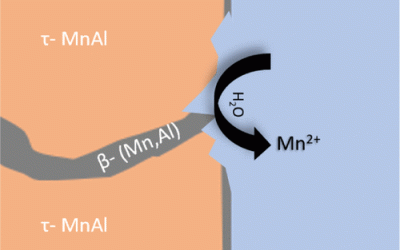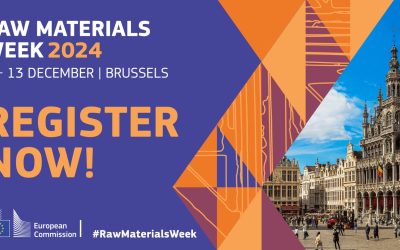The PASSENGER project, a European Union-funded project to develop sustainable alternatives to conventional magnets, has achieved a significant milestone with the successful testing of prototypes integrating rare earth-free permanent magnets developed within the project.
PROTOTYPES DEMONSTRATE THE POTENTIAL FOR GREENER, EUROPEAN-MADE SOLUTIONS
The prototypes, an e-scooter and a water pump system, were assembled using raw materials extracted and processed in Europe. This achievement aligns with the European Commission’s Critical Raw Materials Act, addressing the continent’s reliance on critical raw materials.
Rare earth elements are essential components of many high-performance magnets, but they are scarce and expensive, and their extraction and processing can have a significant environmental impact. The PASSENGER project aims to develop rare earth-free magnets that are just as efficient as traditional magnets, but without the environmental drawbacks.
The prototypes developed by the PASSENGER project use magnets made from improved strontium ferrite, a powder that can be produced from raw materials widely available in Europe. Project partners IMDEA Nanociencia (Spain) and ILPEA (Italy) worked together in the development of this improved material along with TU Darmstadt (Germany) and Jožef Stefan Institute (Slovenia). The magnets were fabricated by Kolektor (Slovenia) and Ingeniería Magnética Aplicada (Spain) and integrated into the rotor of the final products by WILO (Germany) for the water pump system and by Tizona Motors (Spain) for the e-scooter.
Remarkably, in both cases, the motor achieved comparable performance to conventional motors that rely on rare earth-based magnets, in terms of torque, speed, and efficiency. This was possible by working on the optimisation of the whole product to exploit the full potential of the novel magnets.
The success of the PASSENGER project is a major step forward in the development of sustainable magnetic materials. The prototypes demonstrate that rare earth-free magnets can be used to create high-performance products, without relying on scarce and expensive materials. Rare earth-free permanent magnets can be used in a wide range of applications, including electric vehicles, wind turbines, medical devices, computers, smartphones and other electronic devices.
Challenges still exist in scaling production of novel materials, improving existing materials, and ensuring reliability and durability across various applications. On top of these, the next steps for the PASSENGER project include reducing the environmental impact of production to the minimum, developing new and improved rare earth-free magnetic materials (manganese-based), and testing and validating rare earth-free magnets in a broader range of applications.
Download the Press Release (pdf)




